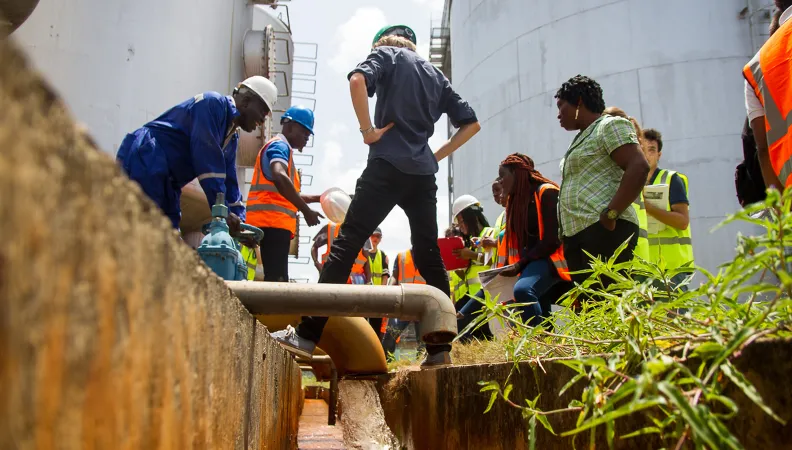Share the page
Improve Access to Safe Water in Ogun State
Project


-
Project start date
-
Status
Ongoing
-
Project end date
-
-
Project duration
-
5 years
-
AFD financing amount
-
33174000 US$
-
Country and region
-
Location
-
Etat d'Ogun
-
Type of financing
-
Beneficiaries
-
Ogun State
One-third of the Nigerian population does not have access to safe water. AFD helps to reduce this deficit in Ogun State, by encouraging the construction of new water infrastructures.
Context
Nigeria is off-track to meet the Millennium Development Goals, especially its water and sanitation targets. In 2012, only 62% of the population had access to drinking water and only 28% to improved sanitation facilities.
In 2012, based on the results of the National Water Supply Sector Reform Program, implemented with the support of the World Bank, the Federal Ministry of Water Resources (FMWR) developed a new intervention strategy. It targets the improvemennt of the operational performance of water utilities and the implementation of sector reforms.
Ogun State faces significant challenges, including low coverage, aging infrastructure, recurring water cuts, low operational and financial autonomy of the Ogun State Water Corporation (OSWC), inadequate sector framework…
A water law and a water policy were recently approved, but are yet to be put into force.
Description
The Ogun State Urban Water Supply Project (OgUWasP) promotes the access to water and sanitation in Abeokuta, the State capital city, where a million inhabitants live. It also aims at both reinforcing governance in the water sector of Ogun State and strengthening its financial viability.
The project encompasses:
- the improvement of infrastructures in Abeokuta, with works on the main conveyance pipes, the construction of elevated water tanks, the refubirshment, extension and densification of the secondary water network and the rehabilitation of five sluice gates of the upstream dam across Ogun River;
- providing support to the State and the OSWC: project management assistance, technical support on institutional and organizational aspects.
Impacts
- Access of additional 250,000 people to improved sources of drinking water;
- Creation of 10,000 domestic connections;
- Founding of 150 water kiosks in Abeokuta;
- Refurbishment of five sluice gates of the upstream dam across Ogun River.


